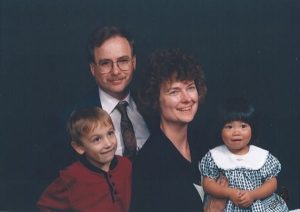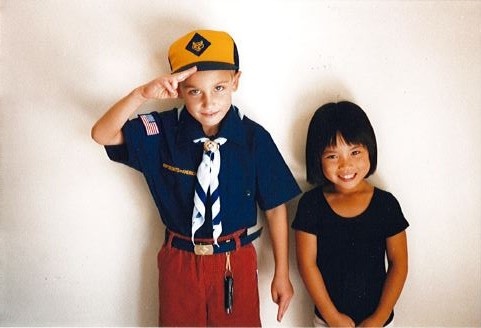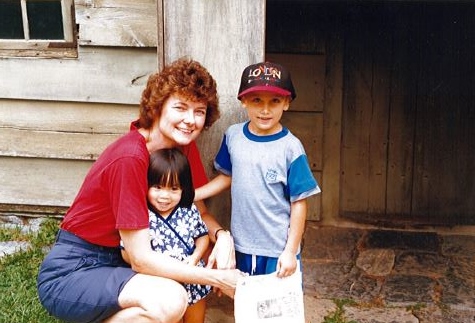Recognizing Minority Status: An Adoptee’s Perspective
I can’t remember when I realized I was adopted. I have always felt a part of my family, even though I don’t have the same skin color as them. Yet, it wasn’t until I got older that I realized other people looked at me differently. That is when I learned to live by embracing diversity.

The Beginning
My story is similar to many adopted babies from China. I was abandoned as an infant, cared for in an orphanage, and adopted by a loving family. My new home was a small town in the rural countryside of Virginia. My parents were ready to take on the challenge of a new baby, as they had also adopted my brother, an infant from Russia, a few years earlier. Thinking back to my childhood, I am glad that I also had a brother who understood adoption. Even though we knew we looked different than our parents, we grew up with a pretty normal American life – soccer games, basketball practices, dance classes, summer camp, we experienced it all.

The Initial Realization
Fast forward to junior year of high school: when I started filling out college applications. First, I ran into the issue of writing my personal essay. I started thinking, “what is unique about me?” and “what sets me apart from other applicants?” Before writing my personal essay, I had never written about my minority status and ethnic background, I actually had never put that much thought into it. Luckily, in my small town I wasn’t treated that differently and the few times people did make remarks I would simply brush them off. Though, in that moment, I realized that is exactly what sets me apart. I grew up in a predominantly white community, where the majority of my friends and family did not have the same skin color as me. This realization catapulted me into writing a personal synopsis of my childhood, as a minority, with details on how I embraced being different through various experiences that did not limit my opportunities to grow.
The next realization came when I was filling out the information sections of the applications. Every single application asked for my race/ethnicity. Affirmative action policies exist to encourage college admissions to accept diverse students in order to ensure a diverse student body. I was aware of this concept, but I hoped that colleges wouldn’t just accept me based on my racial background. Yet, that my application would be given equal treatment based on my academic performance, extracurricular activities, and good student standing.

Embracing Diversity
Applying to colleges gave me a new perspective. Before, I didn’t have a grasp on just how much my ethnic background affected my life. Looking back at my childhood, I realized that not every child attended Asian culture camps and adoption support groups, celebrated “Gotcha Day,” got mild stares in public as a transracial family, and were asked multiple times if there was an interest in finding one’s birth parents. Yet, these experiences were just a part of my life and everyone goes through life differently.
Now as a rising senior in college, I have made a commitment to myself to tackle diversity with optimism. Bring light to the subject, so that others can understand that being different is okay. Even though I have felt comfortable as a minority, I do wish to go back to China one day to explore my birth country and to experience what life might have been like as a part of the majority. I am open to sharing my story and talking about adoption. I am thankful for the opportunity to intern with the National Council For Adoption, as I have been able to critically reflect on my adoption experience.
Even though I am a minority and an adoptee, I am thankful for the opportunities and experiences that I have had so far. I am appreciative of the town I grew up in, as I was able to be myself without others being too judgmental of my differences. Lastly, I have to give a huge thank you to my parents who have taught me how to embrace diversity from the moment they adopted me and to live life to the fullest no matter the circumstances.
